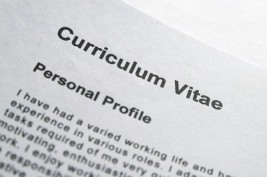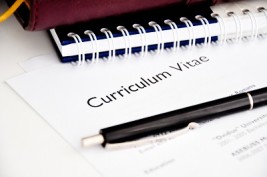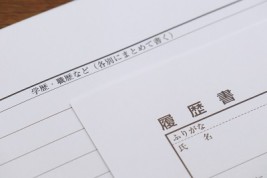There are plenty of manners for job interviews in Japan that even make Japanese nervous. Now you’ve finally received a job interview proposition, so it is essential to learn the Japanese etiquette for your interview. In this section, we will explain in detail some of the most important interview manners, like courtesy and etiquette which are a symbol of Japanese culture. This will come in hand to those foreign engineers who are planning to change jobs soon.
Contents
Tips for a Successful Job Interview
In Japan, companies hiring foreigners are increasing year by year, and the number of foreign workers has reached the highest record with 1,460,463 foreigners in 2019. (Source: * Ministry of Health,Labor and Welfare “Summary of Status of Employment Status of Foreigners”). However, there are still few achievements in Japan. The interviewer might be worried about if you can adapt to Japanese culture and their corporate culture, so be sure to tell him why you applied for the company.
Also, in Japanese job interviews, you need to be careful about your clothes. The point is whether there is a sense of “cleanliness”. Basically, wearing a suit is seen as the rule. Be careful not to add too much perfume. Also, being prepared is an important first step to a successful interview, so make sure to bring your ID, seal (inkan), emergency contact information, and to previously investigate how to get to the interview location.
Step 1: Reception and Waiting Room

The first important thing on the day of the interview is to give yourself plenty of time. Ensuring sufficient time to arrive at the interview venue will not only prevent late arrivals, but also will allow you to make practice what you are going to say, like your motivation, self-appeal, and application guidelines. Besides, it is possible to avoid train delays and to react in case you forget to bring something.
In Japan, being 5 minutes before a job interview is part of the etiquette
Japanese people are very strict about time. Even if you arrive a little after the meeting time, you will leave a bad impression of being a loose person. Therefore, you should arrive at the interview venue at least 5 minutes in advance. At this time, it is safe to check your final appearance.
As well is important to note that, even that it is important to have enough time, arriving too early it is also a violation of manners. If you have a lot of spare time before the interview, wait in the vicinity before entering the venue.
Don’t be late! In case you are, contact them immediately
As a major premise, late arrival is strictly prohibited. If you are inevitably late because you are not feeling well, be sure to call the emergency contact information and recruiter. Even if there is a delay in transportation, it is a good idea to contact immediately and obtain a delay certificate from the station staff just in case. It is also very important as a member of society to be able to be flexible and react to any of this kind of situations.
Manners at the Reception room and Interview
When you arrive at the job interview venue, take off your coat at the entrance. Don’t forget to turn off the power of devices that emit sound, such as smartphones. At the reception desk, communicate the appointed time, the reason for visiting the company, your name and the name of the person in charge, then wait until the person in charge comes. If your company does not have a receptionist or has a telephone (extension) to call the person in charge, you can tell to a nearby employee “I’m sorry to interrupt your work ” and ask them to let the person in charge know that you have come to the job interview. There are cases where even before the interview, you are being evaluated by your answers and posture at the time of reception, so it is important to be ready and to think as the job interview has already begun.
In the Waiting room, wait quietly until you are called
Although it is not in all Japanese companies, you may be passed to a waiting room or to a chair in an aisle before the job interview. Sometimes, it is possible that they are also interviewing other candidates, so don’t touch the smartphone, eat or drink while you wait quietly to be called.
Step 2: When Entering the Interview Room
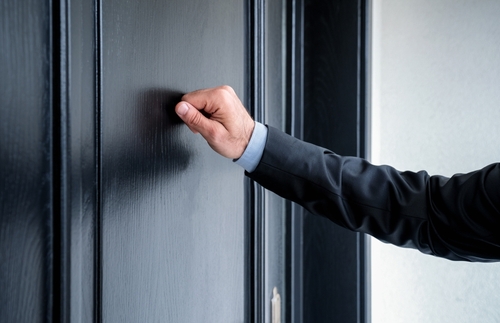
When you are guided from the reception desk or waiting room to the interview room, try to enter the room slowly without being rushed. At this time, if you are not calm, you will leave a negative image, so take a deep breath and be calm.
Knock the door before entering the room
When your name is called by the interviewer, lightly knock the door three times (note that if you do it 2 times, this is the number of knocks when checking the toilet). As well, depending on the company, there are cases where the interviewer enters the room first, and there are cases where the interviewer enters after the candidate. In the latter case, attendant will tell you that the person in charge will come later, so don’t miss it.。
Enter the room after the interviewer says “Douzo (please)”
Do not open the door immediately after knocking. Slowly open the door after you hear the word “please”. If there is no response from the interview room at the first knock, knock again and wait for their reaction. If you still don’t get a response, say “I’m sorry” and open the door.
Close the door quietly after entering the room
When entering the interview room, instead of going straight to the seat, turn your body toward the door as soon as you enter, and close it gently while holding the inner door knob. Be careful not to close the door with your hands behind because that would be a breach of manners.
Seat close to the doorway
In the Japanese business scene, there are seat positions called upper and lower seats which are very important. The upper seat refers to the backmost seat from the doorway, and the lower seat refers to the seat closest to the doorway. The same applies for the interview scene. If the interviewer enters in advance, you can sit in the seat you were instructed, but if the interviewer enters the room later, stand next to the lower seat and wait. If you are assigned a seat from the information desk or have been instructed to sit and wait, follow their instructions.
Don’t forget to greet and bow
When you enter the room, stand next to the chair and give your name looking to the front, and say “Thank you for your time today”, then in the case of men, they should bow with their hands on the sides and women with their hands in the front. If the interviewer enters the room later, get up and greet in the same way.
Step 3: During the Job Interview

Do not sit down immediately after the greeting. Sit down on the chair after the interviewer tells you to do so. If you are given a business card during the greeting, pick it up with both hands, carefully read the content, and place it carefully on the left If there are multiple interviewers, the rule is to place business cards in the order in which they are sitting. Also, if you want to take notes during the interview, it is a good idea to store your notebook and writing utensils in a convenient location in your bag. If you are told to bring application documents, you will be asked to submit them, so prepare them in advance.
Keep your back straight and correct your posture
You can also see your posture during the interview. If you keep your back straight and place your hands lightly on your lap, you will get a good impression. There are many people who tend to look down when they are nervous, and they often turn their eyes away, so be sure to keep your eyes on the interviewer and answer.
Answer clearly with a cheerful expression
Ideally, you should relax your shoulders and smile gently. Let’s be careful not to become too expressionless. Of course, it is strictly forbidden to laugh out loud with familiar words and laughter. When responding to questions from interviewers, it is important to listen to the other person’s story to the end and answer in a clear tone. If you don’t understand or can’t hear something, be sure to tell it.
Step 4: When Leaving the Room
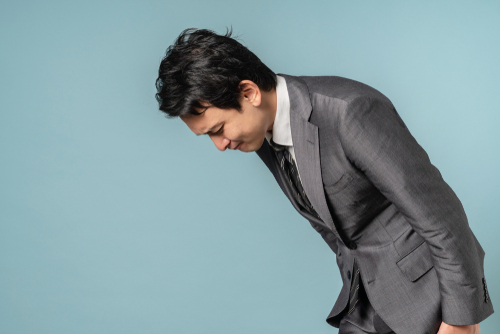
If the interviewer tells you that the interview is over, thank with a “Thank you for your time today,” while bowing sitting in the chair. After that, you can stand up with your writing utensils and documents in your bag. If you have received a business card, you can say “I’ll keep your business card”.
Always bow when leaving
When you’re ready to go home, stand next to the chair and make a bow. After moving to the front of the door, turn your head to the interviewer, say “Excuse me” and open the door again. Make sure to close the door quietly until the end without rushing to leave early.
Interview is finished until you can’t see the venue anymore
Do not lose composure after leaving the interview hall, so avoid touching your smartphone or taking off your jacket until you leave the building. Also, depending on the company, there are cases where the interviewer or the information desk sees you off to the exit of the interview room or to the elevator hall, so when you arrive at the exit or elevator, you should say “excuse me” once more. In the case of an elevator, a very polite impression will be given if you keep your head down until the door closes.
Conclusion
A job interview that normally makes people nervous, above that if you do it in a foreign country, it’s difficult to avoid feeling uneasy. Even after telling you some of the interview manners that are unique to Japan so far, not many people reading this article are 100% Japanese, so it’s okay if you can’t do everything perfectly. We hope you can use the Japanese interview manner guide introduced here as a safeguard. The important thing is whether you can make preparations and show that you are a valuable person for the company you are interviewing. If that effort and sincerity reach the interviewer, you will surely get a good result.








